Education
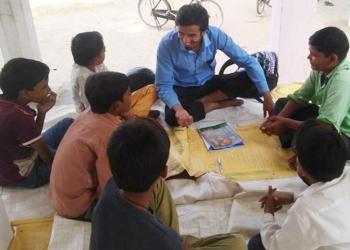
Harish Bajpai was 17 years old and in search of the truth. He had dropped out of school after 8th grade and gone to a special program to learn about the Hindu religion. But Harish’s learning experience did not give him peace of mind and he left, frustrated and disturbed. He participated in other training programs as well, yet he did not find any purpose in his life.
Then Harish came in contact with the project team from Chhatarpur Christian Hospital when he attended a meeting for adolescents. The project officer spent time listening to his frustrations and counseled him in healthy self esteem, coping with tension, family relationships, and the importance of education. Harish realized he needed to change the course of his life.
Some time later, Harish came to the hospital to speak with the project officer once again. He had decided to continue his schooling and he wanted to learn more about God. The project officer gladly shared the good news and gave him a copy of the Word. Since then Harish has been regularly participating in the adolescent meetings and learning from the project team. This turnaround in one young man’s life can be attributed to the focus that EHA staff put on not just the medical needs of a person but also their emotional, spiritual, and psychological needs. This type of holistic care changes live.
Attaining Her Dream
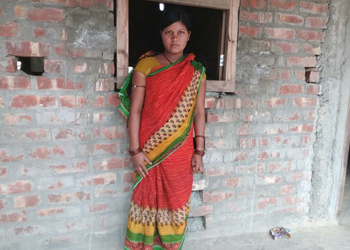
Puja Kamari’s parents were poor, and they had six daughters to support. Her father often drank and treated the family very badly. In 2012, when Puja was in the 8th standard (similar to 8th grade), her parents arranged her marriage with Ravi Rishidev. She was only 13. “In my family, there are six daughters, and due to lack of awareness, my parents always thought that we were a burden for them. They always wanted to arrange our marriages,” Puja explained.
Forced to move to her husband’s village 20 kilometers away from her home, Puja unwillingly gave up what she loved most, attending school. She was devastated because her dream was to study and make something of herself. Then Puja discovered that the Madhipura Community Program had started an informal school in Dhi hamlet for dropout students. Thrilled to be a part, Puja joined the school and began to study hard at the encouragement of the tutors. After catching up on her studies, Puja was able to re-enroll in the 9th standard in the local government school. Hoping to provide a good example, she is encouraging other girls to study. And now Puja is able to dream of completing her education and becoming a teacher. She reasoned, “I want to study more and be an example for the Mahadalit (low caste) community so that parents will not think of their daughters as burdens.”
Putting Food on the Table
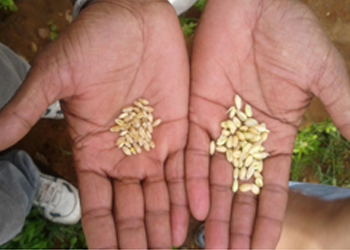
He lost his father when he was young, and the weight of meeting his family’s needs landed on his shoulders. Arvind and his older brother were forced to drop out of school and seek work to support their mother and siblings. The best they could find was factory work in a city far from home. They were surrounded by other young men who had migrated to cities in other states just to find a job.
But last year when Arvind came home to his village, he heard about a meeting organized for adolescents by EHA’s Nav Jivan Hospital’s Injot Project. Intrigued, he attended the meeting and learned about the efforts made by this project to strengthen communities by developing improved agricultural practices. The goal of the Injot Project is to empower communities to provide a safe and growth-oriented environment, especially for children and adolescents. They want to prevent the trafficking and abuse of at-risk children, including those who are working when they should still be in school.
Now Arvind is resolved to be a part of this group so that he can learn new agricultural skills to be better equipped to face his future. He also wants to go back to school. By learning methods such as crop diversification and climate resistance cropping, Arvind and his brother will be able to increase yields on his family’s land in order to support his mother and sisters. The Injot Project has even been able to help needy communities access benefits through the government such as improved seeds and other agricultural supplements. Arvind has hope that he can now stay home in his village, finish school, and still be able to provide for his family’s needs. EHA’s community projects are making a real difference in the lives of many poor rural Indian families like Arvind’s.
Adolescent Group Encourages Nursing Education
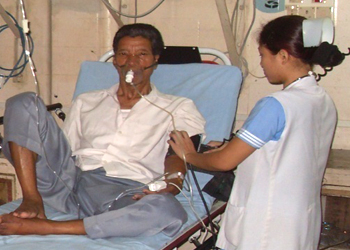
Reena was an active girl who longed for higher education. She lived in Ajgawan village and her parents wanted to marry her off. But Reena became actively involved in an adolescent group with Broadwell’s Community Development Project, participating in dramas on issues like gender sensitization and women’s empowerment. Reena convinced her parents to let her apply for admission into Broadwell’s nurse assistant course. She completed the course in six months and continued on to an internship. Reena is a very bright student and she stands out in her community. When she began the nurse assistant course, some people in the community criticized her father for allowing her to study because they felt it was better for her to just get married. But Reena’s father stood by her and supported her fully in her endeavor. The community projects’ ability to open up opportunities for young women like Reena is a significant step toward changing the cultural barriers they face.
Duncan Hospital Educates Women
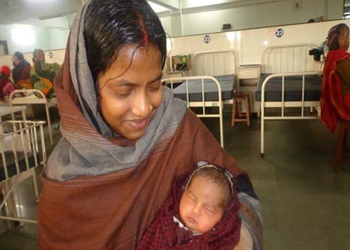
Rabita Devi is a woman from Guleria village in Bihar. Married at 16, Rabita suffered the grief of delivering two stillborn children over the course of the next seven years. In 2012 she conceived for the third time. Understandably, she was anxious about losing this child too. She couldn’t stop thinking that her baby would die.
One morning as she peeped from her window she saw a horse and cart near her home with a mother stepping out, holding her newborn baby. She went to this neighbor to ask where her baby had been born.
The neighbor proceeded to explain to her the importance of getting antenatal checkups and choosing to deliver in a hospital. She told her about the Mother and Child Health Clinic in Barwa village where antenatal care was provided at minimal cost. This clinic also referred women to Duncan Hospital for their deliveries.
Rabita went home with her hope renewed. She told her husband, Jitendra, all she had learned. Soon Rabita visited Barwa Clinic and was referred to Duncan for an abnormal presentation. On January 30, 2013, Rabita delivered a heathy baby boy via C-section. Duncan staff were able to provide her a 75-percent discount based on her ability to pay.
Today Rabita is a happy mother who makes a point to tell other young women about the importance of antenatal care and hospital deliveries. Duncan staff are succeeding in re-educating women about mother and child health, one woman at a time.
School Opportunities Are Realized
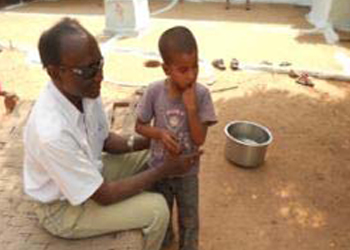
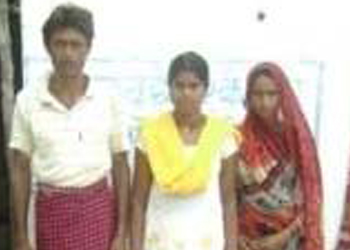
One key role the Community Health and Development workers fulfill is that of encouraging education. One 7-year-old boy named Ajeet had a congenital visual impairment, and his family had given up on school for him. When a project worker talked with them about providing education for Ajeet through a residential school away from their neighborhood, they were amazed. After three months at school, Ajeet can count up to 100 and knows the alphabet in Hindi and English.
Another student seeking education was Shobha, whose mother died when she was two. Raised by her grandparents, Shobha was forced to stop her education after the eighth standard (similar to eighth grade) because there was nowhere nearby to continue. Her grandparents thought she should just get married and forget about school. When the project worked spoke to her grandparents, they initially resisted the idea of seeking more education for Shobha. Eventually, the worker’s persistence won out, and Shobha now attends an intermediate college in Bansi. She is thrilled to have this opportunity. Changing lives through education is just one way project workers are making a difference for these students.
Literacy: A Step Toward the Empowerment of Women
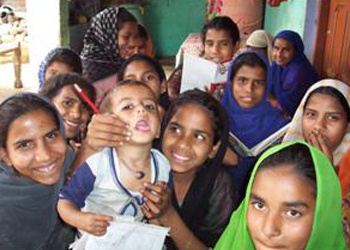
Imagine being a girl and being told there is no need for you to go to school because you will just be caring for your family when you grow up. Imagine being told that you might be influenced by an “outsider,” so you cannot go to classes. Imagine not being able to voice your concerns or opinions.
In India, the overall literacy rate is 74%, but for women it is just 65%. In many areas of north India the rate is far lower. Thanks to a Community Development Program at Herbertpur Christian Hospital, a group of village girls has earned the right to gain knowledge and study for a better life. They’ve also been exposed to the love of God!
These girls had been gathering in the village center for literacy classes when Hindu religious leaders expressed opposition and villagers began causing problems for the center. This caused the literacy teacher to leave. Refusing to give up, the group of girls banded together and decided to continue the center on their own, asking one of the girls to continue to teach them.
Seeing the determination and zeal of the girls to study and gain knowledge, the religious leaders gave in and requested the teacher to return. So this EHA literacy program will continue to help these girls move toward an educated future, empowering them to take charge of their lives.
Villagers Receive Much-Needed Training
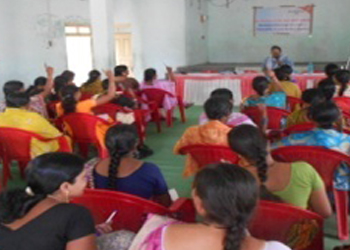
A key priority for each of EHA’s projects is developing the community’s awareness of health concerns. At Kachhwa Christian Hospital nearly 900 adults from the surrounding villages have gone through some form of training in the education and micro-enterprise development program.
Some were trained as dental and eye technicians. Still others attended classes on sewing or air-conditioning installation and maintenance. Recently added was training for 25 nursery school teachers. Regardless of the program they chose, each participant has learned valuable skills that will enable them to support their families financially.
Literacy Brought to Slum Families
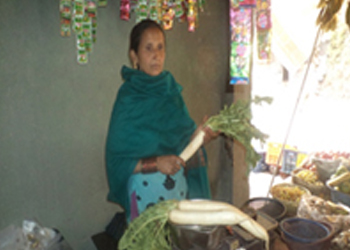
Near EHA’s Landour Community Hospital lies a slum called Tehri Bus. Many of the people who live there are “rag pickers” — people who sort through garbage heaps looking for recyclables like cloth, paper, glass, metal, and plastic that they can sell for cash in order to survive.
Ravina and her husband and children worked hard at rag picking, but they couldn’t make enough money to be able to send the children to school. Then Ravina heard about a literacy course offered in the slum, and she enrolled herself. Landour’s Community Health and Development Team had started this literacy center, and through their efforts, many poor people have gained reading skills, so basic to success in life.
After Ravinia completed the course, she was able to start a small shop, selling peanuts and other items. As she began to earn money, she added products like vegetables to her offerings. Ravina is proud of the success of her shop and of her ability to operate it on her own. She and her husband are thrilled to be able to send their children to school to give them a better start in life.
Sending Kids Back to School
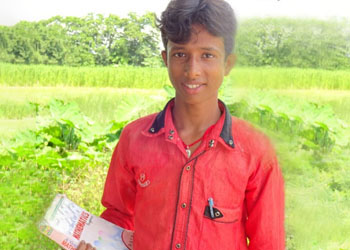
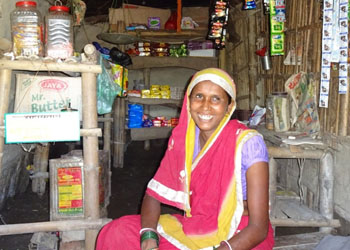
Nikhil had a difficult childhood with an alcoholic, abusive father who eventually left his family. His mother could not get enough work in the village to feed him and his two younger brothers. Nikhil was sent to live with his grandmother to help take care of her.
One day a relative came to Nikhil’s mother, promising a good job for him in Allahabad. This person paid her 1,000 rupees ($15) in advance and took Nikhil to Allahabad. To his horror, he was forced to work in a bag factory with absolutely no pay and was often beaten by the factory owner. After six months of this torture, he was rescued by a project volunteer and brought home to his family.
When the Madhipura Christian Hospital project team met Nikhil and his family, they were identified as being very vulnerable to human trafficking. Project staff immediately began to discuss with them the best ways to protect the children. It was decided that the project would support Nikhil’s mother in running a small shop, and she was given 6,000 rupees ($88) to set up and open the shop. Then, project staff worked to get Nikhil and his two brothers re-enrolled in the local school and paid their tuition.
Now Nikhil’s mother is earning 100 rupees each day in her shop which makes a big difference in helping her to provide for her family. She also works as an agricultural laborer in her village to earn extra money. She says, “One year ago, I was spending my life in tears, but now I am so happy with my kids. I am so thankful to Madhipura Christian Hospital for their help.”
I Want to Go to School, Too!
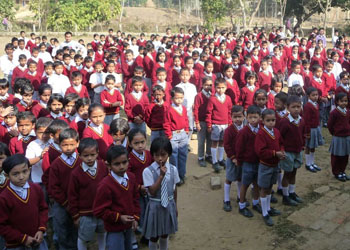
Young Wan-bar Casia walked his Kindergarten sister to school each day. One day a hospital doctor saw him crying bitterly under a tree. She asked him if he was ill, and he replied, “No, I just want to be like my sister and go to school and study. After I go home, I’ll be asked to bundle up pan leaves and do so many chores to support my family.” After discussing his plight, common to so many local children, the Makunda Christian School staff decided to offer Wan-bar a free education.
Without this quality education, many of the 645 children who attend the school would grow up to be pan leaf pickers, making just 10 cents for a bundle of leaves that they have to climb up very high trees to pick. Through education, the school hopes to transform families and eventually communities.
Teacher Elson Tonsing sees his classroom as his mission field, often talking about God in the classroom. He knows he doesn’t need to travel to a distant mission field, but can share the message of God’s hope with these children. Transformation is happening, one child at a time
Woman Joins Literacy Program for Higher Education
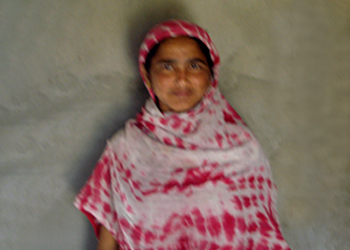
Her family didn’t want her to. Her husband discouraged her from participating. But Sahiddudin Nisha, a 32-year-old Muslim woman, wanted to join the literacy program at Prem Sewa Community Health and Development Project.
She had completed only the 8th class (grade) and wanted more education. So after encouragement from the project staff, she signed up as a teacher and taught Hindi, a language which she had taught herself. She went on to complete her 10th and 12th classes due to her own determination and persistence.
Sahiddudin then received an award for female literacy work, obtaining a certificate from the State Minister of Education. Now with her her whole family’s support, she is working toward a B.A. Thanks to Prem Sewa’s Literacy Program, her horizons are expanding. The Community Health Project staff are able to share the love of God through programs such as these, making a difference in the lives of many.

About Education
While education may be taken for granted in some parts of the world, it is often a privilege for those in India. The literacy rate in India is 74%, but it is lower for women and often far lower for many in north India. Many young people are forced to drop out of school at an early age to help provide for their family by any means possible. Others simply have no way to attend schooling in their rural locations or because of financial reasons, and many young women are told to stay home and learn how to take care of a family.
EHA works with young people and women in north India to help educate them. Sometimes, just basic literacy makes all the difference as it enables a person to continue learning. Even simple reading skills can help someone be confident and successful in many areas of life. Helping young women stay in school to finish their basic education is a significant goal for EHA. More advanced education programs also help students learn more highly trained work like welding, sewing, nursing, or business. Education plays a key role in helping to break the cycle of poverty, and many young people who receive this advanced training are able to contribute significantly to their family’s income.
